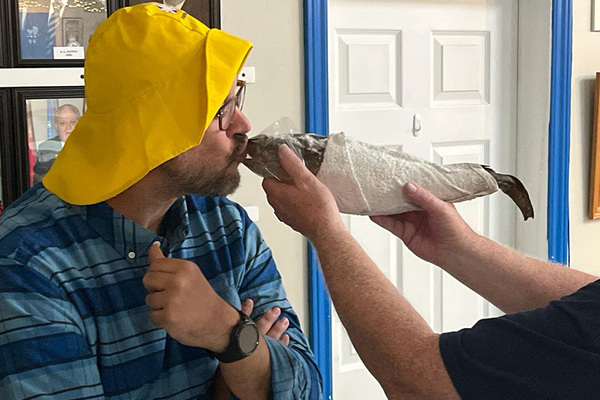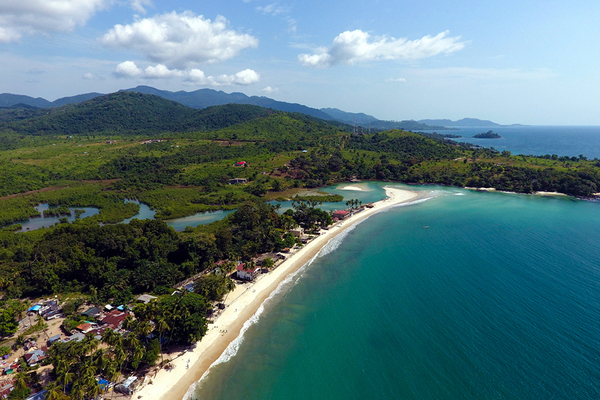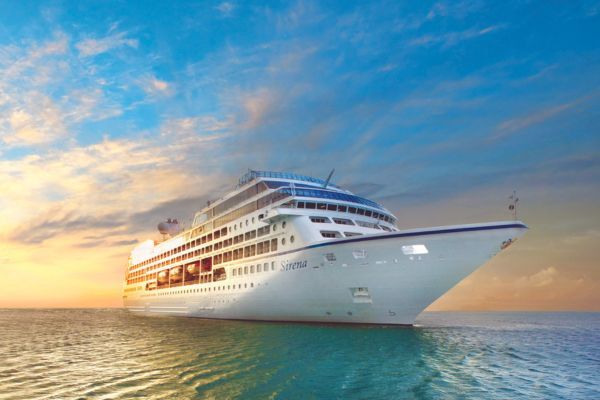How putting lionfish on the menu can help save Saint Lucia's reefs
Katie James, the Travel Foundation’s destinations programme officer, explains how it is combatting the destructive lionfish in St Lucia
For people visiting St Lucia, trying new dishes is all part of the holiday experience, but lionfish is not served as often as it could be. This is partly due to the misconception that the fish is poisonous (although the spines are venomous, with correct handling they can be easily and safely removed). Research indicates that one of the best ways to control the spread of this species is to increase its consumption, and there is plenty of potential to do this with international visitors.
What is the Travel Foundation doing?
The aim is to help control the spread of the invasive lionfish species, which is decimating coral reefs in the Caribbean, by making it easier for local fishing communities to catch it and serve it to tourists.
The project involves training several fishing communities in St Lucia on the safe handling and processing of lionfish – including the supply of puncture-proof fish handling gloves (bought using donations from Holiday Extras’ customers) and better traps. Working with wholesalers, hotels and tourist restaurants, they will build a supply chain and demonstrate the economic value of catching and serving lionfish. Restaurants will also be supported to communicate the environmental and gastronomic benefits of eating the fish.
It is hoped the project will help protect the coral reef – one of St Lucia’s key tourism assets – and allow native fish populations to recover, as well as improving livelihoods for local fishers.
Why does it matter?
Caribbean coral reef ecosystems are already threatened by overfishing, pollution and climate change but the invasion of the lionfish has made things worse, reducing populations of small native reef fish by up to 80% in some areas. Some have called it the worst invasive marine species in history.
Over the last 30 years, lionfish have spread rapidly across the entire region. Their high reproductive rates, swift growth, diverse diet and defensive venomous spines make them more successful than native predators, whose populations have often been reduced through overfishing. A study in the Bahamas indicated that lionfish dominance grew to nearly 40% of total predator biomass in just two years. It’s the first non-native marine fish to invade the Caribbean Sea, so the long-term impact on native reefs and ecosystems is unknown.
St Lucia is one of the last Caribbean countries to be invaded by lionfish, with the first recorded sighting in 2011. It is important that the island starts to find ways to control its proliferation before native fish populations, and the coral reef systems supporting them, really begin to suffer.
What can I tell customers?
Explain to customers visiting the Caribbean that the reefs are among the most impressive in the world and are a top attraction for divers and snorkellers but they need protecting. Customers can make sustainable choices to help – for instance by avoiding souvenirs that use shells or coral, using biodegradable sunscreen and other products, and by ordering sustainable seafood.
By choosing lionfish, customers get a meal with a story behind it and the chance to do their bit to tackle an invasive species problem while supporting the local fishing community. From a conservation point of view, lionfish in the Caribbean are caught using the spear or trap methods, and we simply can’t eat too many. It has white, buttery flesh, and is healthier than many other popular fish; higher in Omega 3 fatty acids and lower in saturated fats. It is delicious with lemon, pan-seared with vegetables, fried or served in other tasty island recipes.
- Visit tinyurl.com/TTG-lionfish for more details, and for responsible seafood choices from the Marine Conservation Society, go to tinyurl.com/TTG-MCS

















